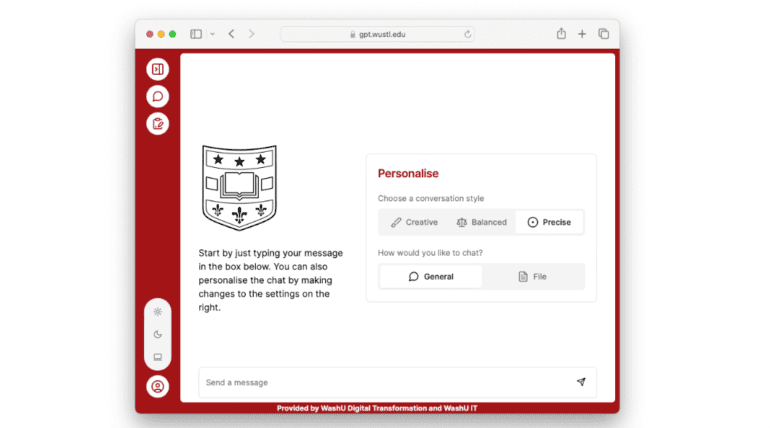- Universities like the University of Michigan, Harvard, and UC Irvine have developed their own versions of ChatGPT for academic use.
- These initiatives aim to address concerns about equity, privacy, and intellectual property rights in AI.
- Platforms like U-M GPT and ZotGPT offer free access, leveling the educational playing field.
- Concerns over the $20 monthly fee for commercial ChatGPT versions highlight the importance of accessibility in AI.
- University-developed AI tools prioritize privacy and institutional control over real-time updates.
- A 19-university task force led by Ithaca S+P seeks to explore the evolving landscape of generative AI in academia.
Main AI News:
As ChatGPT made its debut in November 2022, educational institutions like the University of Michigan swiftly recognized the need for action. While the university established an advisory group to assess ChatGPT’s impact on education, Ravi Pendse, UMich’s chief information officer, took decisive steps forward.
Months later, preceding the fall 2023 semester, the university unveiled U-M GPT, an in-house generative AI tool. Currently, U-M GPT boasts a substantial user base of 14,000 to 16,000 individuals daily.
“A mere report wasn’t enough. We aimed to provide tangible solutions,” remarked Pendse. He emphasized Michigan’s commitment to equity, highlighting that U-M GPT is freely accessible, leveling the educational playing field.
The University of Michigan stands among a select few institutions that have developed their own iterations of ChatGPT in the past year. Notable examples include Harvard University, Washington University, the University of California, Irvine, and UC San Diego. This initiative extends beyond merely embracing artificial intelligence (AI); it’s a strategic move to address concerns regarding equity, privacy, and intellectual property rights.
Students leverage platforms like OpenAI’s ChatGPT for various tasks, from academic writing support to homework assistance. However, the introduction of a $20 monthly fee for the latest ChatGPT version creates an imbalance, disadvantaging students without financial means, argued Tom Andriola, UC Irvine’s chief digital officer.
“Is it justifiable for some students to pay $20 monthly for superior AI capabilities while others settle for less?” questioned Andriola. He emphasized the imperative of ensuring AI accessibility for all, thus avoiding exacerbating the digital divide.
UC Irvine recently unveiled its AI chatbot, ZotGPT, addressing these concerns. Deployed since October 2023, ZotGPT aids staff and faculty with tasks ranging from syllabus creation to coding, allaying worries associated with third-party platforms.
The issue of intellectual property rights has motivated universities to develop their AI tools. Concerns regarding OpenAI’s lack of transparency in ChatGPT’s training process prompted institutions like Washington University to take action.
Albert Lai, leading Washington University’s digital transformation efforts, spearheaded the launch of “WashU GPT” last year. Leveraging Microsoft’s Azure platform, WashU, UC Irvine, and the University of Michigan ensure data privacy and integration within institutional frameworks.
While universities’ AI models may lag in real-time updates compared to commercial counterparts, Lai stresses the significance of prioritizing privacy and institutional control.
The path ahead for universities contemplating their AI initiatives remains uncertain. Nevertheless, a 19-university task force, “Making AI Generative for Higher Education,” spearheaded by consulting firm Ithaca S+P, aims to explore the evolving landscape of generative AI in academia.
Encouraging university IT officials to explore available resources, Lai envisions a future where more institutions develop their versions of ChatGPT.
“Unlocking the potential of AI in education is within reach,” concluded Lai. “Once the formula is cracked, adoption becomes seamless.“
Conclusion:
The emergence of university-developed AI solutions signifies a shift towards customized, privacy-conscious approaches in the education sector. As institutions navigate concerns surrounding equity and intellectual property, they are fostering innovation while ensuring accessibility for all students and faculty. This trend suggests a growing demand for tailored AI solutions in the market, prompting businesses to consider similar strategies in addressing niche needs while upholding ethical standards.

